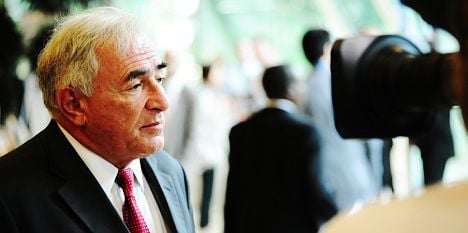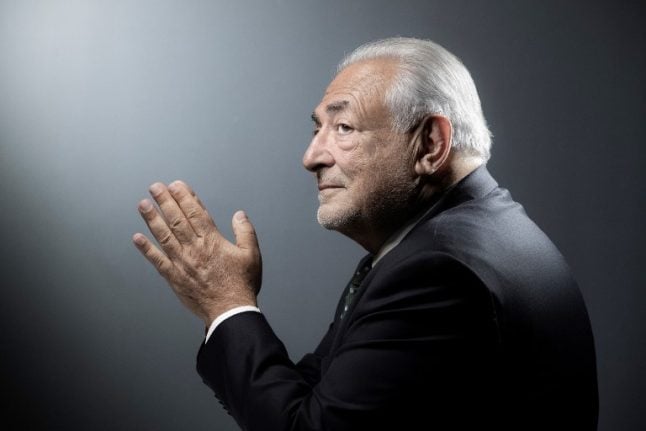The countersuit, signed on Monday and made public on Tuesday, seeks a minimum of $1 million, plus legal costs and undetermined punitive damages from the maid, Nafissatou Diallo, who is accused of “falsely and maliciously asserting” she was attacked.
The 18-page document accuses Diallo of malicious prosecution, abuse of process, false imprisonment, defamation and intentional infliction of emotional distress.
“Ms Diallo participated in the commencement and maintenance of a baseless criminal prosecution,” the suit said, “and in doing so intended to injure Mr Strauss-Kahn.”
The suit was the French politician’s latest attempt to turn the tables on Diallo and recover from a scandal that started a year ago when Diallo accused him of forcing her into oral sex when she went to clean his luxury hotel room.
An initial criminal case against Strauss-Kahn collapsed because Diallo lied to Manhattan prosecutors on certain aspects of the story.
However, Strauss-Kahn was forced to resign from the International Monetary Fund and abandon his hopes of winning the French presidency.
Subsequently, Diallo launched a civil suit seeking unspecified damages in New York, while in France prosecutors opened a separate criminal case against Strauss-Kahn, alleging involvement in a prostitution ring serving orgies in several countries.
The rival civil suits are both filed in New York state court in the Bronx, where a judge has ruled against Strauss-Kahn’s bid to claim diplomatic immunity and have the maid’s action thrown out.
They represent diametrically opposed versions of what happened when Diallo went to clean Strauss-Kahn’s Manhattan Sofitel suite.
According to Diallo, she was ambushed by a nude Strauss-Kahn. Shortly after, she notified hotel staff, the police were called, and Strauss-Kahn was arrested at John F. Kennedy Airport just as he was about to fly to Europe.
In his suit, Strauss-Kahn says there was a sexual encounter, but “no violence, force or coercion” and “Ms Diallo suffered no injuries whatsoever.”
He then presents a version of events that makes him the sole victim, starting with “a degrading and humiliating strip search” by police and being “paraded in front of international media in handcuffs as part of a ‘perp walk’ intended to humiliate him.”
The suit notes that Diallo was determined to have lied to prosecutors about her past, most damagingly about a supposed gang rape in her native Guinea, which in fact did not take place.
Strauss-Kahn blames the legal onslaught and publicity for “causing grievous harm to his personal and professional reputation” and “losing his position with the IMF.”
“As a direct and foreseeable result of Ms Diallo’s abuse of process, Mr Strauss-Kahn has suffered actual damages in an amount to be determined at trial, and also is entitled to punitive damages to be assessed by the jury,” the suit stated.
A US lawyer for Strauss-Kahn, William Taylor, said Diallo should expect to face the suit.
“She is directly responsible for his being arrested, imprisoned, and subjected to extraordinary pain, anguish and expense,” Taylor said.
“He is not required to simply endure what she did and her effort to profit for herself without fighting back.”
But Diallo’s lawyer Douglas Wigdor dismissed the countersuit as an example of “Strauss Kahn’s misogynistic attitude.”
“As with his plea for diplomatic immunity, we are entirely confident this latest desperate ploy will be swiftly rejected.”
Wigdor also said he did not expect the countersuit to be more than a “very small bump in the road” for his own client’s legal strategy.
This move was an effort in spin and public relations,” he said.
Before the New York scandal and the French prostitution allegations, Strauss-Kahn, 62, was seen as a champion of France’s Socialist Party and expected to beat vulnerable president Nicolas Sarkozy at the polls this year.
Instead Socialist candidate Francois Hollande stood against Sarkozy, and won. He took the oath of office on Tuesday.



 Please whitelist us to continue reading.
Please whitelist us to continue reading.
Member comments